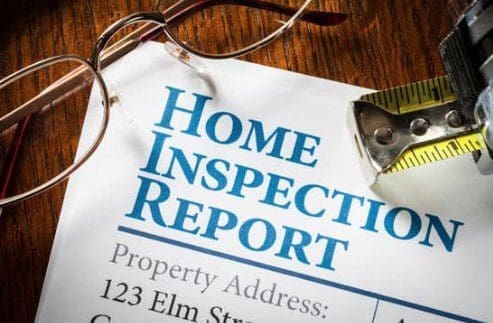 Next up in our series about real estate closings, let’s define the important terms included in the real estate contract. First, it is important to know that any contract (and any changes to a contract) for real estate MUST BE IN WRITING because of a law called the Statute of Frauds.
Next up in our series about real estate closings, let’s define the important terms included in the real estate contract. First, it is important to know that any contract (and any changes to a contract) for real estate MUST BE IN WRITING because of a law called the Statute of Frauds.
The Statute of Frauds sounds ominous but it is simply a law to protect the parties who enter into an agreement. It was first enacted in England in 1677 and requires certain contracts to be in writing in order to be enforceable to avoid the possibility of fraud.
As discussed in the previous article, in all counties in Connecticut except Fairfield, the real estate contract starts as a written offer from the buyer. This offer is generally on a standard form developed by the local real estate association and prepared by the buyer’s realtor.
As long as the pertinent terms are included and clear, once the seller signs the offer, it becomes a binding contract. This is sometimes referred to as a “meeting of the minds.” So what terms are usually included?
Who Are The “Parties” In a Contract?
Parties: the names of the buyer(s) and the seller(s).
It is important to have the names of the parties in the contract, especially to ensure that the person signing as the seller is the actual owner of the property.
Sometimes the parties are modified prior to the closing. For example, if a couple is purchasing a home and then realize through the mortgage process that one person’s poor credit rating is making it difficult to get a mortgage commitment, they may choose to remove that person from the contract.
(SIDEBAR: It is possible to have someone on the title of the home and not on the mortgage note. That person can be an owner of the home and not be on the loan, but would need to sign the mortgage deed authorizing the loan to be secured by the home).
When a buyer plans to rent the property they are purchasing, they often decide it is beneficial to own the property in the name of a limited liability company for asset protection, in which case, the party to the contract needs to be changed to the new LLC with an addendum to the contract.
How Important Is a Property “Description”?
Description. An accurate description of the property being purchased and sold is extremely important.
If the buyer submits an offer to purchase 100 Main Street, thinking that it includes the building and the acreage behind the building, but the acreage is actually a different parcel known as 101R Main Street, and the seller signs the offer thinking they are agreeing to sell 100 Main Street only, there is no “meeting of the minds.”
What’s Included In The “Price” In a Real Estate Contract?
Price. This is often the first term a seller will review when they receive an offer and obviously the term that the buyers spend most of their time analyzing as well. The price is generally broken down into the following terms:
1. Earnest Money Deposit
This is the money that the buyer submits with the offer as a good faith gesture that they are serious about the transaction. An earnest money deposit is the amount that the buyer is putting at risk if they fail to close on the contract outside of any contingencies (discussed later).
Back in the last century, deposits were commonly about 10% of the purchase price. That changed in the early 2000s when home prices increased. Deposits decreased even more when the market turned into a “buyers” market and sellers were more willing to accept any terms a willing buyer presented.
In the past two years, with the lack of inventory and increase in buyers, sellers have had the upper hand and can require higher deposits. A buyer wishing to make their offer more attractive may choose to provide a higher earnest money deposit.
The earnest money deposit is not paid to the seller until the closing. Until that time, the realtor’s office usually holds the deposit in their escrow account. It is then paid over to the seller’s attorney just prior to the closing and used to offset what the buyer owes to the seller.
2. Mortgage Proceeds
If the buyer plans to obtain a mortgage to help finance the purchase of the property, the Purchase Price terms include the amount of the mortgage proceeds that will help obtain the full purchase price.
3. Gifts
If the buyer will be obtaining a gift to purchase the property, this line item should also be included in the purchase price. It is important to confer with the mortgage lender prior to making an offer that includes a gift because the lender will require certain documentation, including a written agreement that the person providing the gift is not intending to ask for it back.
In other words, this will not be another loan. The mortgage lender wants to make sure that it is the first and only lender with an interest in the property.
4. Balance
The remainder of the purchase price is listed as the balance that will be paid at closing. Buyer beware, however, that this is not necessarily the full amount that the buyer will have to pay to close on the transaction because there are fees and expenses also due at the time of closing.
If the buyer is obtaining a mortgage, there are fees and expenses to the lender/broker, like the origination fee, credit, and tax reporting expenses.
Even if the buyer is not obtaining a mortgage, there are fees for the title search, which is necessary to ensure the buyer is getting the good title, title insurance, attorney fees, recording fees, and adjustments (discussed later).
The buyer will also need to be financially prepared to obtain homeowners insurance and most lenders require the policy to be paid in full for one year, so that is an additional cost that the buyer needs to be prepared to pay at or prior to closing.
 What Are Home “Inspections”?
What Are Home “Inspections”?
Inspections. When the buyer makes the offer, one of the choices they have is whether to inspect the property and what inspections they want to do.
Inspections range from a general structural inspection to well and septic, if the property has those, to lead paint and mold. Most standard form contracts include boxes to check for each inspection that the buyer wants to perform.
The buyer also must choose a time period during which they will perform the inspections and report back to the seller if they find any issues that are unacceptable. This time period is commonly referred to as the INSPECTION CONTINGENCY PERIOD.
If the buyer notifies the seller before the timeframe expires that the buyer is terminating the contract because they found something in the inspection unsatisfactory, then the buyer can back out of the contract and receive their earnest money deposit back 100%.
More often, the buyer finds issues that they did not realize when they made the offer and request that the seller repair the issue or provide a credit or reduction in the price.
Again, because of the statute of frauds, this request should be in writing. If the seller agrees, they sign the request and it becomes part of the contract.
We recommend that you include your closing attorney in this part of the transaction because the wording needs to be unambiguous so both parties know what they are obligated to do and what they will get out of the arrangement.
Further, asking for a large credit could affect the mortgage so it is also important to review your request with your loan originator so the agreement of the parties does not cause problems for the buyers’ mortgage commitment.
SIDEBAR: Even if a seller lists a property as being sold “AS-IS”, the buyer can submit an offer with inspection contingencies and if the seller accepts that offer, the buyer is free to do those inspections. Of course, the seller does not have to agree to any of the buyers’ requests.
Again, it is worthwhile having your closing attorney involved in this part of the transaction because depending on how the original form contract is written, asking for changes due to the inspection could allow the seller to terminate the contract and that may not be the buyers’ intent.
Related Post: Your Real Estate Closing Team – Who’s On It?
What is a “Mortgage”?
Mortgage. In most cases, the buyers have to obtain a mortgage to finance the purchase and without it, they cannot afford to pay the full purchase price on their own.
If this is the case, it is extremely important to complete the mortgage contingency section of the contract. This section includes the amount of the mortgage that the buyer intends to obtain and can also include specifics about the mortgage, including the type of mortgage (conventional, FHA, VA) and the interest rate.
Mortgage Contingency Deadline
The contract also includes the deadline upon which the buyer will obtain a commitment from a lender. The timeframe to obtain a mortgage commitment is usually between 30-45 days.
If the buyer cannot obtain mortgage commitment under the terms set forth in the contract by the deadline, they can notify the seller (again, in writing!) and either terminate the contract and ask for their earnest money deposit back or ask for an extension.
Mortgage Contingency Extension
Extending the mortgage contingency deadline is very common because the backlog with lenders is large and there are often conditions that can only be confirmed just prior to closing (i.e., that the buyer is still gainfully employed).
Just as with the inspection contingency, we recommend that buyers involve their closing attorney with the written request for a mortgage contingency extension.
An unwisely worded request could allow the seller to terminate the deal. This is known to happen when the seller feels uncertain about the buyers’ ability to obtain the mortgage or, especially in this market, they have received another offer that they would rather accept.
What Are ‘Adjustments”?
Adjustments. As mentioned earlier, the buyer needs to be aware that they will be responsible for paying additional costs at the closing beyond the purchase price.
Adjustments for real estate taxes, condo association fees, and the value of oil and propane left at the property are the most common.
The buyer is responsible for the real estate taxes and condo association fees due starting on the closing date. Often the seller has already pre-paid those expenses, so part of the closing attorneys’ role is to work with one another to calculate the amount of these expenses that are the buyers’ responsibility.
The seller can also request that the buyer pays them for the value of oil and propane left on the property because these are commodities in addition to the property being purchased.
It is the sellers’ responsibility to contact the servicing companies to send a written report of the value of the commodity being left, which often requires the company to come to the property to measure the amount left. The seller can choose to forgo this if they want.
How Much Is The “Conveyance Tax”?
Conveyance Tax. In Connecticut, a conveyance tax return is required to be filed with any deed that is submitted for recording at the town clerk’s office.
Filing the deed for recordation at the town clerk’s office is a necessary part of the transaction to put everyone on notice that the buyer now owns the property. The tax due is based on the price and is paid to the State and the town.
The town receives a tax equal to 0.25% of the price. For all properties sold for $800,000 or less, the State’s tax is 0.75% of the price.
If the property is sold for more than $800,000, the state receives tax of 1.25% for the amount over $800,000 and 2.25% for the amount over $2,500,000. Unless the parties otherwise agree, the seller is responsible for the payment of any conveyance tax due.

What Is a “Closing Date”?
Closing Date. The final term in the contract that is important to document a meeting of the minds is the closing date. This is the date that the buyer’s offer indicates that the buyer will be able to finalize the transaction.
It is important that this term be included because the parties could have very different ideas of when the transaction will close. The buyer may need time to close on their current home and want to wait three months for a closing, while the seller may want to finalize the transaction sooner.
SIDEBAR: When a buyer has to sell their current home in order to close on the new property, this is often referred to as a HUBBARD clause, which is yet another contingency that must be met before the buyer is obligated to finalize the transaction.
Related Post: The Truth About The Closing Date
It should include a date prior to which the buyer agrees to remove the contingency, which the buyer can do once they are assured they have a buyer that is going to purchase their house. Even if there is no Hubbard contingency, many factors can affect the closing date.
The buyer’s mortgage commitment may be delayed because of the volume of mortgages the lender has or because of issues that come up in the underwriting process. Inspection issues that require repairs that cannot be finished in time could delay the closing. Title issues that need to be cleared up could also delay the closing.
So although it must be included in the contract, parties should be aware that the date is fluid and they should be prepared to be flexible on the timing.
If you are in the market to buy or sell a property, we can assist. We have a real estate closing department with three attorneys and a dedicated real estate paralegal with over 35 years of experience.
Disclaimer: The information provided in this article does not, and is not intended to, constitute legal advice and is for general informational purposes only.
Let Us Know How We Can Help!
Please fill in your contact information and a brief message about what you need help with. A consultation will need to be scheduled in order to provide legal guidance.
Joan Reed Wilson Esq. – Managing Partner
Practices in the areas of estate planning, elder law, Medicaid planning, conservatorships, probate and trust administration, and real estate. Admitted to practice in the States of Connecticut and California, she is the former President of the CT Chapter of the National Academy of Elder Law Attorneys (NAELA), an active member of the Elder Law Section of the Connecticut Bar Association, accredited with the PLAN of CT for Pooled Trusts, with the Veteran’s Administration to assist clients with obtaining Aid & Attendance benefits for long-term care needs and with the Agency on Aging’s CareLink Network.







